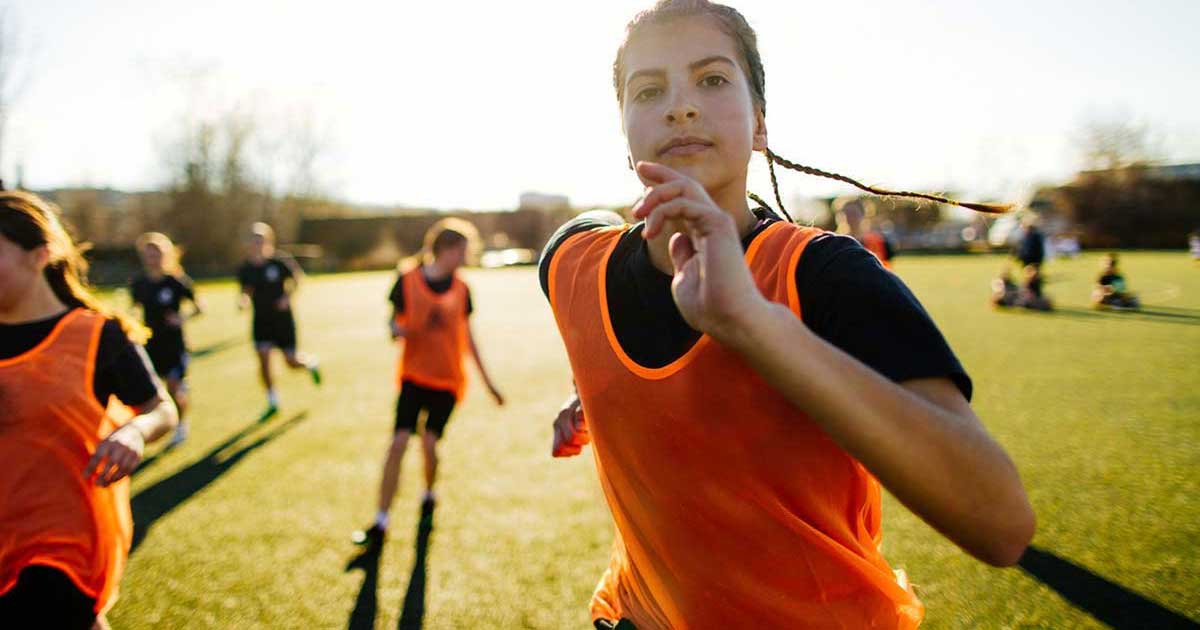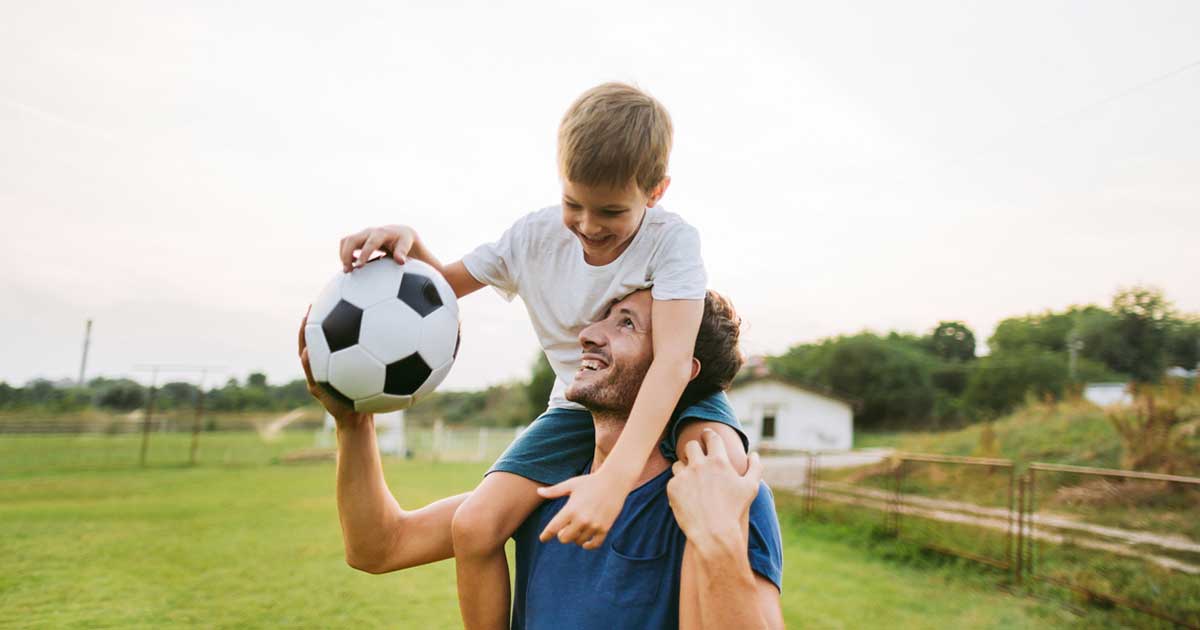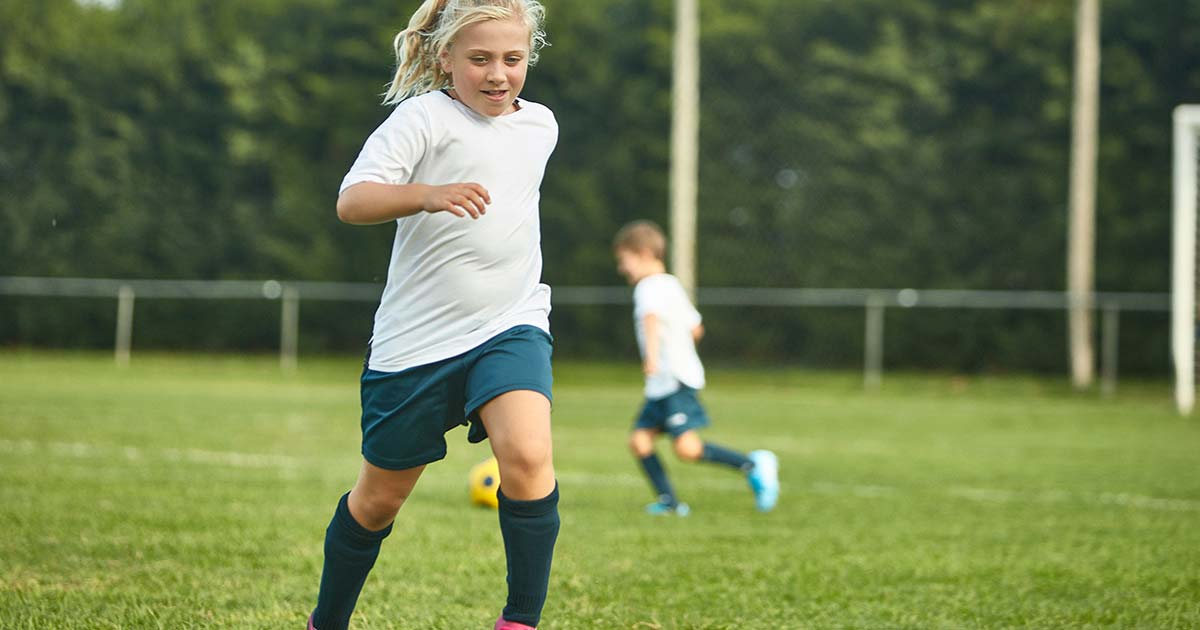
Advice to improve your movement, fitness, and overall health from the #1 in orthopedics in the U.S.
Concussions in Kids and Teens: What Parents Should Know
Anyone can get a concussion, even the youngest children. Learn the symptoms and what to do about them.
Advice to improve your movement, fitness, and overall health from the #1 in orthopedics in the U.S.
Sports-related concussions continue to be a major health concern in young athletes, particularly for those who play high-contact sports like football or hockey. But youth athletes in other sports are vulnerable as well—in fact, the highest rates of concussion in girls are in soccer and basketball players.

A concussion results from a force or impact like a bump, blow or jolt to the head that jostles the brain. The brain bouncing or twisting in the skull creates chemical changes, which can damage brain cells. Falls, bumps and other accidents can cause a concussion, but it doesn’t have to be a direct blow to the head, according to Teena Shetty, MD, a neurologist and program director of the Concussion Program at HSS.
Also, anyone can get a concussion, even young children. Children are more vulnerable to concussions due to their immature, developing nervous and musculoskeletal systems. Symptoms vary from person to person, so some kids may not know they have a concussion, and their parents may not realize it either. Because of the wide range of symptoms, people often go undiagnosed and untreated, says Dr. Shetty.
The possibility that your child has suffered a concussion is a scary thought. But with a prompt diagnosis, the proper care and adequate rest, most kids make a full recovery.
Concussion Symptoms in Kids and Teens
In the past, “people did not appreciate the risks of concussion and multiple concussions,” Dr. Shetty says. “People also did not realize that someone can sustain a concussion even with just a small bump to the head.”
How do you know if a child or teen has sustained a concussion? Dr. Shetty says the injury affects people differently, but parents should look out for any of the following signs:
- headache or “pressure” in the head
- fatigue
- nausea or vomiting
- memory problems
- confusion
- dizziness or balance problems
- blurred vision
- sensitivity to light and noise
- unsteadiness
- anxiety
- irritability
The severity of a brain injury can range from mild to severe. Most people do not need to go to the emergency room. However, a parent should bring a child or teen to the ER if he or she experiences the following:
- a serious neck injury
- a loss of consciousness, or level of consciousness that deteriorates over time
- repeated vomiting
- inability to recognize people or places
- profound confusion
- numbness or tingling in the arms or legs
- symptoms that worsen dramatically in a short period of time
What to Do If You Think Your Child Might Have a Concussion
If you think your child may have a concussion, it’s wise to see a doctor within a few days of the injury, even if emergency care is not required.
If a concussion is suspected while your child is playing a sport, it’s important for the child to leave the field or court immediately, Dr. Shetty says. Young athletes who experience a head injury should be evaluated by a healthcare professional trained in diagnosing and managing concussions. They should not return to a sport until they have fully recovered and their doctor has given them the green light to play.
“If a concussion goes undiagnosed and untreated, the immediate consequence is that you are at a much higher risk for sustaining another injury, even with much less force,” Dr. Shetty says. “In terms of long-term outcomes, not following concussion guidelines after an injury can lead to persistent symptoms and eventual post-concussive syndrome, in which symptoms last for weeks, months or even years after the initial injury.”
Returning to a sport or other activities after a concussion should be gradual, she adds, starting with the reintroduction of work and school activities. Slowly increasing the heart rate with activity and sports-specific exercise movements, including non-contact drills that require the child to think critically while moving, should be done before they’re cleared to return to play. The biggest mistake that coaches and parents make is allowing the player to return to an activity too soon.
Treating and Preventing Concussion in Young Athletes
“If a child feels comfortable and safe reporting an injury to a coach or parent, then they are much more likely to do so. However, there still remains a stigma in some sport cultures to be ‘tough’ and just ‘power through’ an injury,” says Dr. Shetty. “This steers kids away from reporting headaches or dizziness after an impact to their head.”
Concussions aren’t fully preventable, but there are things that can be done to lower the risks of sustaining one, she adds, including wearing properly fitted equipment such as helmets, headgear, and mouth guards. Also, “education and awareness of concussions, neck strengthening exercises, rule changes and proper enforcement of rules can help reduce the risk.”
A significant portion of people who sustain a concussion were not playing sports at the time, Dr. Shetty says, so increased awareness of the signs is also important.
Concussion Research at HSS
The concussion program at HSS aims to enhance our understanding of how to diagnose concussions accurately and investigates potential new therapeutics for quicker recovery and prevention of secondary injury. Research team members include Dr. Shetty, Nathaniel Yoon and Ayse Erdemir.
- Investigating the utility of specific MRI sequences in tracking changes in the brain after injury and throughout the recovery period.
- Testing the validity of certain neuropsychological assessments looking at recovery from a concussion.
- Searching for and validating a blood biomarker – a substance released in the blood when an individual sustains a concussion.
- Using a new technology, called a Brain Network Algorithm test, to measure the electrical impulses from the brain and the response time in individuals with a concussion.
- Looking into specific activities that may serve as barriers to recovery for a concussion patient to develop evidence-based guidelines for recovery.
Published 8/28/2023


